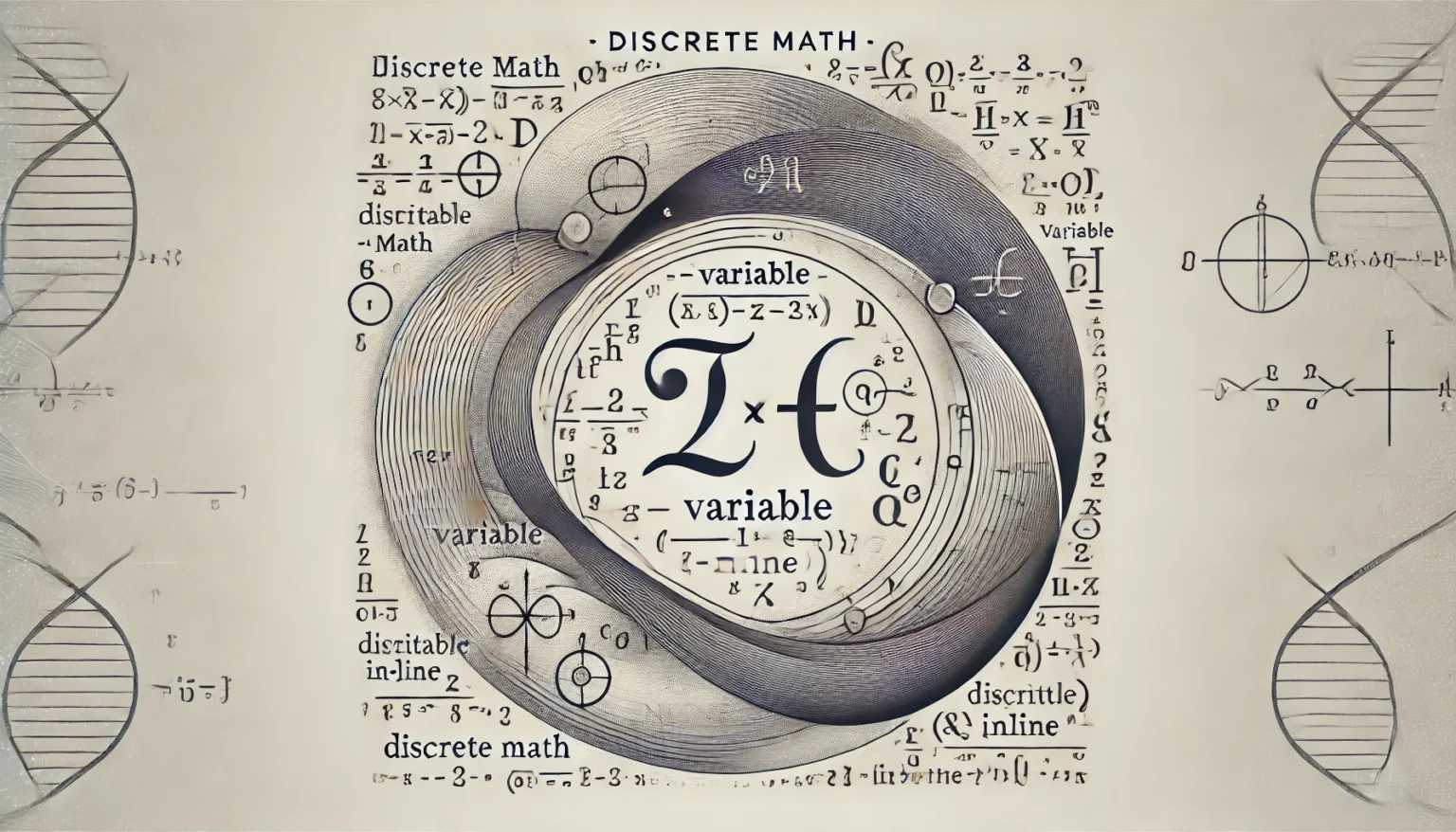Variable Inline Discrete Math, particularly variable inline discrete math, represents a core area of mathematics focused on structures that are fundamentally discrete, meaning they do not support or require the notion of continuity. This field encompasses a variety of sub-disciplines including graph theory, set theory, combinatorics, and algorithms, each playing a crucial role in modern science and technology. The increasing relevance of discrete mathematics is seen in its widespread application across computer science, cryptography, and algorithm design, serving as a foundational tool in the development of digital and networked technologies. This article explores the depths of variable inline discrete math, elucidating its principles, applications, and the profound impact it has on solving complex, real-world problems.
Defining Variable Inline Discrete Math
Variable inline discrete math is concerned with the study and application of discrete elements that are used for setting up models of distinct scenarios, as opposed to continuous models. The primary focus here is on variables that can assume a distinct and finite number of states. This field is particularly concerned with the articulation and manipulation of these variables in various mathematical models. Through its rigorous framework, practitioners can solve problems related to optimization, decision-making, and resource allocation with high efficiency and accuracy.
Basic Theoretical Framework
The theoretical underpinnings of variable inline discrete math involve set theory, number theory, and logic. Set theory deals with the collection of objects, known as sets, and is fundamental in understanding and describing collections of objects or numbers in discrete math. Number theory allows mathematicians and scientists to explore the properties of integers, their relationships, and applications in areas such as cryptography. Logic forms the basis of mathematical proofs and is critical in developing algorithms that perform as expected without errors.
Applications in Computer Science
In the realm of computer science, variable inline discrete math is indispensable. It is pivotal in the development of algorithms that run our software and processes. For instance, data sorting, searching algorithms, and even complex operations like data encryption and network routing are grounded in the principles of discrete math. Understanding the discrete models helps in optimizing these algorithms for speed and efficiency, thereby enhancing overall system performance.
Significance in Cryptography
Cryptography, the practice and study of secure communication in the presence of adversaries, relies heavily on discrete mathematics. Variables and algorithms in cryptography ensure that data transferred over networks is secure and unreadable to unauthorized users. The discrete nature of this math allows for the construction of complex cryptographic systems like RSA and ECC, which secure sensitive data across various digital platforms.
Networking and Graph Theory
Graph theory, a significant branch of discrete math, is extensively used in network design and analysis. Networks can be represented as graphs in mathematics, with nodes representing connections and edges representing the connections between these nodes. This representation helps in performing tasks such as finding the shortest path for data transfer and optimizing network resources, crucial for effective network management.
Challenges in Variable Inline Discrete Math
Despite its utility, variable inline discrete math comes with its set of challenges. The complexity of designing algorithms that are both efficient and effective in handling large-scale problems is a significant challenge. Additionally, the discrete nature of the math often requires more memory and processing power, which can be a limiting factor in resource-constrained environments.
Innovative Solutions and Future Directions
As technology progresses, so does the field of variable inline discrete math. Innovations such as quantum computing provide new horizons for applying discrete mathematics in ways previously unimaginable. Researchers are continually exploring more efficient algorithms and models that can handle larger data sets with quicker processing times, driving advancements in AI, machine learning, and beyond.
Educational Impact and Workforce Development
Educationally, understanding variable inline discrete math is crucial for future scientists, engineers, and mathematicians. Curricula designed to integrate discrete math effectively into education systems can prepare students better for the challenges of modern technological environments. Moreover, as industries increasingly rely on digital technologies, the demand for professionals skilled in discrete math continues to grow, highlighting the need for strong educational foundations in this field.
Conclusion
Variable inline discrete math is a dynamic and essential field of study with wide-ranging applications from the internet to secure communications and efficient algorithm design. Its role in the advancement of technology and science is indisputable. As we continue to delve deeper into the digital age, the importance of discrete mathematics is only set to increase, making it a key area of interest for upcoming generations of engineers, mathematicians, and scientists. This exploration not only enhances our understanding of the discrete world around us but also equips us with the tools to innovate and solve the complex problems of tomorrow.
Frequently Asked Questions (FAQ)
1. What is variable inline discrete math?
- Variable inline discrete math is a branch of mathematics that deals with structures that are discrete rather than continuous, focusing on integers, graphs, and statements in logic.
2. How is variable inline discrete math applied in computer science?
- It is used to develop algorithms, manage data structures, secure data through cryptography, and optimize network designs.
3. Can you provide examples of engineering applications of variable inline discrete math?
- Examples include digital signal processing, system modeling, and the development of control systems that require discrete states.
4. What are the challenges faced in variable inline discrete math?
- Challenges include managing computational complexity, optimizing algorithms, and adapting theoretical models to practical applications.
5. What future developments are expected in the field of variable inline discrete math?
- Future developments may focus on enhancing computational methods, expanding applications in machine learning, and further integration with emerging technologies.
See more : Beer League Hockey: Inside the World of Amateur Ice Warriors
Read for more topic click here celebritytimes








